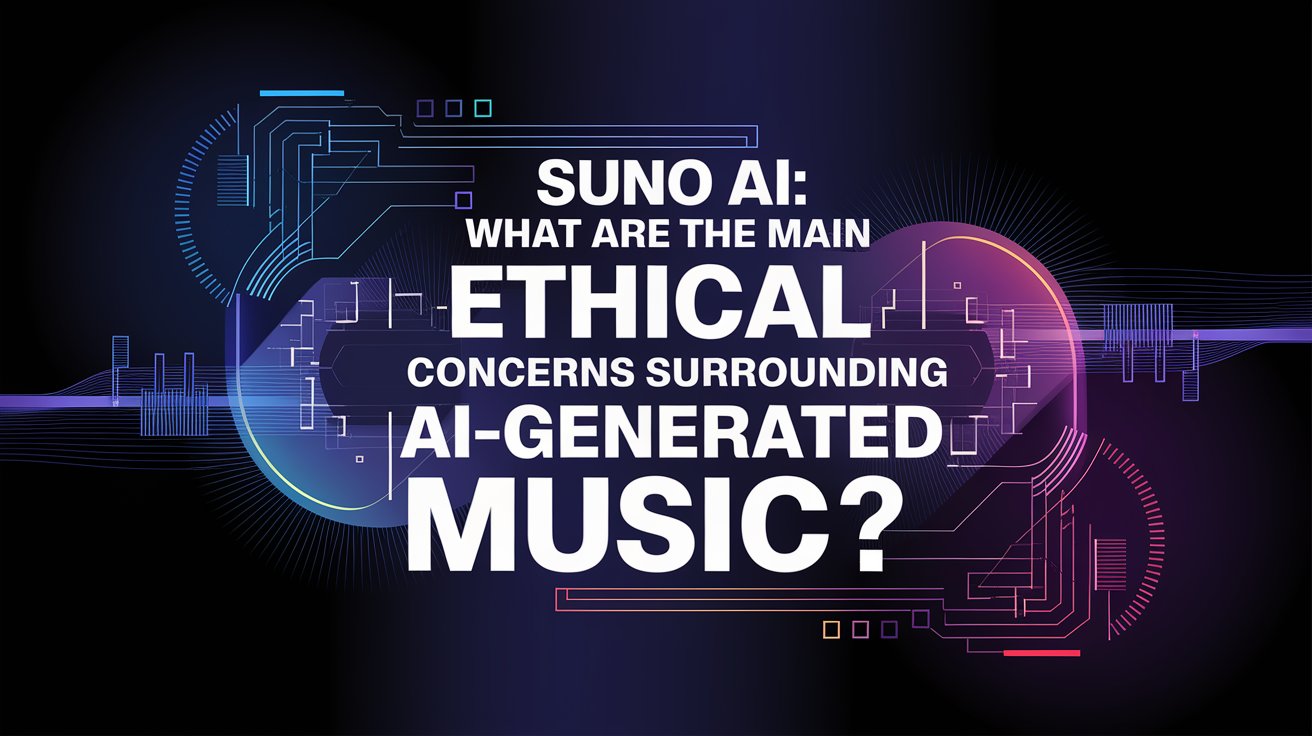AI-generated music is revolutionizing the industry, enabling anyone to create complex compositions with minimal technical skill. However, platforms like Suno AI—a leader in text-to-music generation—have sparked intense debates about ethics, creativity, and legality. Below, we break down the core ethical concerns tied to Suno AI’s technology and its broader implications.
1. Copyright Infringement and Ownership Disputes
The most contentious issue revolves around how AI models like Suno are trained. Suno has admitted its AI uses copyrighted music scraped from the open internet, arguing this falls under “fair use.” Major record labels, however, disagree. The Recording Industry Association of America (RIAA) sued Suno in 2024, seeking up to $150,000 per infringed work.
Key Problems:
- Training Data Transparency: Suno has not disclosed its full training dataset, raising suspicions about unauthorized use of copyrighted material.
- Output Ownership: If a user generates a song mimicking Taylor Swift’s style, who holds the rights—the user, Suno, or Swift’s estate? Current laws don’t clearly address this.
- Precedent Risks: A legal victory for Suno could normalize unlicensed scraping of creative works, undermining artists’ rights globally.
2. Devaluing Human Creativity and Craft
Suno’s CEO, Mike Shulman, stirred controversy by claiming many find traditional music creation “unenjoyable” due to its technical demands. Critics argue this mindset dismisses the emotional labor and skill behind music-making.
Examples of Tension:
- Homogenization: AI tools risk flooding platforms with formulaic tracks, diluting unique artistic voices.
- Artist Backlash: Musicians like Drake and The Weeknd have faced AI deepfakes (e.g., Heart on My Sleeve), where their voices were cloned without consent.
- Cultural Appropriation: AI might repurpose styles from marginalized communities without credit or compensation.
3. Job Displacement in the Music Industry
AI’s efficiency threatens roles across production, composition, and sound engineering. For instance:
- Automated Mastering: Tools like LANDR replace audio engineers, cutting costs but reducing demand for skilled professionals.
- Suno’s Accessibility: While democratizing music creation, it could undercut session musicians and producers.
Balancing Act:
AI lowers barriers for indie artists but risks devaluing expertise. As one producer noted, “Mastering is expensive, but should we automate artistry?”
4. Ethical Misuse and Harmful Content
Suno’s open-ended design has enabled users to generate racist, antisemitic, and violent tracks, including songs glorifying Hitler. Unlike platforms with strict content filters, Suno’s guardrails appear inadequate, raising questions about accountability.
Why It Matters:
- Reputational Damage: Offensive outputs harm both Suno and artists whose styles are mimicked.
- Lack of Safeguards: Without robust ethical guidelines, AI tools can weaponize creativity.
5. Transparency and Bias in AI Systems
Suno’s algorithms may unintentionally perpetuate biases from their training data. For example:
- Gender Bias: If trained mostly on male artists, outputs could marginalize female musicians.
- Cultural Blindspots: Overrepresenting Western music might sideline global genres.
The Fix?
Ethicists advocate for diverse datasets and audits, but Suno has not shared details about its data curation process.
6. Legal Gray Areas and Future Precedents
Suno’s lawsuit with the RIAA could reshape copyright law. The core debate: Is AI-generated music transformative (fair use) or derivative (infringement)?
Possible Outcomes:
- If Suno wins, AI firms gain leverage to mine copyrighted works freely.
- If labels win, stricter licensing and royalties could slow AI innovation.
Toward Ethical Solutions
Addressing these concerns requires collaboration:
For Platforms like Suno:
- Transparent Sourcing: Disclose training data origins and obtain proper licenses.
- Content Moderation: Implement filters to block harmful outputs.
- Artist Partnerships: Share royalties with musicians whose work influenced AI models.
For Policymakers:
- Update Copyright Laws: Clarify ownership of AI-generated content and penalize unethical data scraping.
- Ethical Standards: Mandate audits for bias and transparency in AI tools.
For Artists and Users:
- Label AI Involvement: Clearly tag AI-generated music to maintain listener trust.
- Advocate for Rights: Push for laws like Tennessee’s Elvis Act (protecting voice/likeness) to cover AI abuses.
The Bottom Line
Suno AI epitomizes the double-edged sword of generative technology. While it empowers creators, its ethical pitfalls—copyright battles, dehumanized artistry, and unchecked misuse—demand urgent action. The music industry must balance innovation with accountability, ensuring AI elevates rather than exploits human creativity. As legal battles unfold, one truth remains: technology evolves faster than ethics, but progress shouldn’t come at the cost of artistic integrity.



